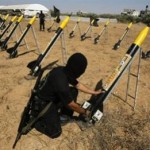Friday
Jan292010
Palestine: Hamas Refuses An Independent Commission on Gaza "War Crimes"
 Friday, January 29, 2010 at 14:02
Friday, January 29, 2010 at 14:02  As the deadline approaches for both Israel and Hamasto respond to the United Nations over the Goldstone Report on the Gaza War, a report handed by a Hamas official to The Associated Press says that Hamas did not target civilians while firing hundreds of rockets at Israeli towns and rebuffs the UN call for an independent enquiry.
As the deadline approaches for both Israel and Hamasto respond to the United Nations over the Goldstone Report on the Gaza War, a report handed by a Hamas official to The Associated Press says that Hamas did not target civilians while firing hundreds of rockets at Israeli towns and rebuffs the UN call for an independent enquiry.On Thursday, the New York-based Human Rights Watch harshly criticized Hamas, saying there was strong evidence the Islamic militant group intentionally aimed its rockets at Israeli towns. According to the group, Hamas not only committed war crimes against Israelis but also against Gazans since the militants fired rockets from populated areas inside the strip.
Israel-Palestine: Way Forward Through “Low-Level Peace Talks”?
Israel-Palestine: Obama to Netanyahu, Abbas “Deal With Your Opposition Within”



 On Sunday,
On Sunday,